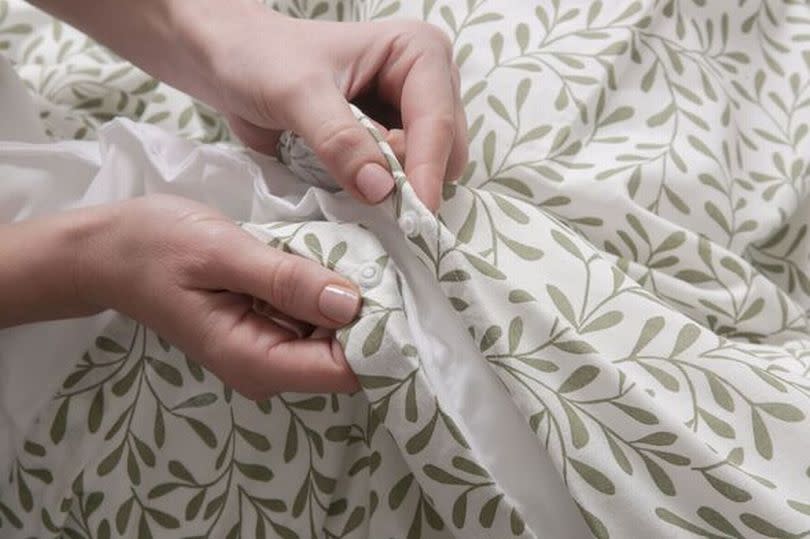'Correct' temperature to wash bedding at to kill dust mites - and how often

A common household conundrum centres on how often to wash bedding and at what temperature, yet expert advice points towards a weekly clean.
The specialists at Pizua Linens remarked: "The bedroom, in a dream world, is the most peaceful place in the house."
They went on to say, "It's the room that you go to rest, revitalise your mind, body and soul and awaken ready to tackle the next day."
But they warned, "The following bedroom hygiene facts, however, might change the way that you lay your head on the pillow."
Dust mites, they say, breed rapidly and can become a significant problem because they inhabit mattresses, upholstered furniture, and beddings, reports the Express.
Additional comments from the experts were: "Dust mites are tiny arachnids that love to chomp on skin cells shed by people, all 15 million of them each night, and chill in a humid and warm environment."
Describing our beds, the experts added, "As you can imagine, your bed is the equivalent to the finest all-expenses paid luxury resort for dust mites."
Furthermore, they shared an unsettling fact: "You might be horrified to learn that a mated female house dust mite can lay up to 100 eggs in the last five weeks of life."
There's good news, though; there are several methods to keep these pesky mites in check, which includes laundering your bed linens at the right heat.
Killing bacteria and dust mites necessitates washing all bedclothes, including pillowcases, at 60 degrees, as recommended by the experts.
Their tip was clear: "This temperature is correct for killing dust mites and allergens."
Ensuring they dry thoroughly before storage or reuse is crucial, as dampness can lead to mould growth.
It's not just about washing your bed sheets at a warm 60C; regular changing or rotation is key for hygiene.
Lucy Ackroyd, Head of Design at Christy, advised: "Wash and change your bedding at least once a week."
She highlighted that for pet owners or allergy sufferers, particularly during hay fever season, this should increase to twice a week.
A further recommendation from Ackroyd is not to overlook the duvet and pillows: "It's important not to neglect your inner bedding either so aim to wash your duvet and pillows at least twice a year as even with linen covering them, the inner fillings can absorb dead skin cells and body oils and odours."

 Yahoo News
Yahoo News 
